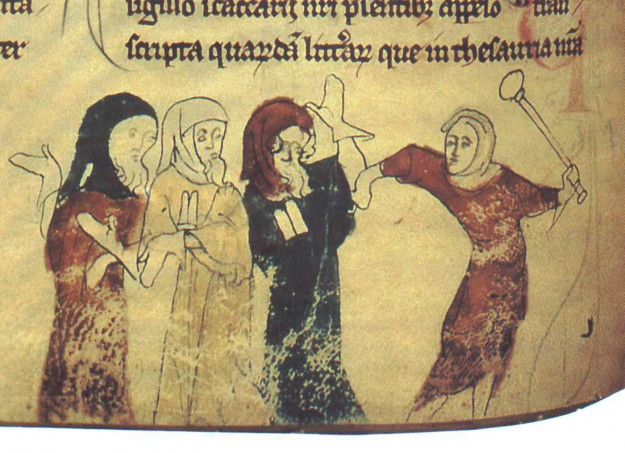I thought I would start with the Medieval Canterbury Weekend 2024 because it seems some people are finding that the canterbury.ac.uk/medieval-canterbury link is taking them to last year’s History Weekend not the one this year. Many apologies, but I’m reliably informed by the web team here this is due to your previous browsing history and those pesky algorithms through your chosen search engine. You should be able to train your search engine to find MCW24 but alternatively use ckhh.org.uk/mcw because that will equally give you details of all the events for our great Weekend between Friday 26 and Sunday 28 April 2024, as well as info. about the Ian Coulson Memorial Postgraduate Award fund.
If you get stuck, please do email artsandculture@canterbury.ac.uk because the team will be delighted to help you. Alternatively, you can also reach the team by phoning 01227 923690 during office hours Monday to Thursday. Ticket sales continue to go well, and we will have a second advert in the BBC History magazine that’s out in March. If people spot it, we would love to know because that offers an idea about whether such publicity works. My thanks to Dr Diane Heath for designing the advert and I saw the finished item which looks great.
Keeping with the Medieval Canterbury Weekend for the time being, I thought I would just mention a couple of the talks. Ever since I learnt about and then saw the fantastic pieces produced at the enamelling workshops of Limoges, I have been fascinated to learn something about the men who produced these devotional miniatures painted in glass on a copper base in the late 15th century. As Dr Anthony Gross will discuss in his presentation on Saturday 27 April, historians know far more about these master craftsmen from 16th century Limoges. Nevertheless, he is going to explore for us two artists from the earlier period: the Master known as ‘Monvaerni’ and the Master of the Louis XII Triptych. Furthermore, he can put even more colour onto these men to give a more rounded biography because the Bishops of Limoges also acted as Archbishops of Barletta and enjoyed close relations with political actors high in the favour of Louis XI and Louis XII. By investigating these connections Dr Gross can trace a shadowy connection between court politics and the promotion of these two enamelling workshops. Thus, as well as this detective work, we will be treated to images of such beautiful, luxury items – a real feast for the eyes!
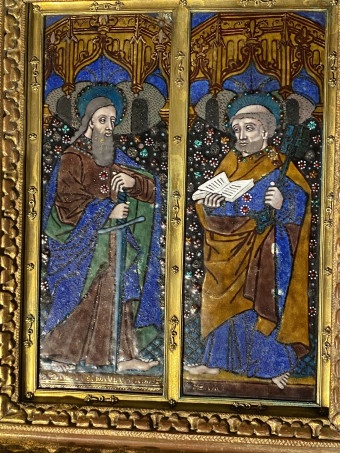
Keeping with a continental feel, the second presentation I want to focus on this week from the Medieval Canterbury Weekend is Dr David Rundle’s assessment on Sunday 28 April of the relationship between late fifteenth-century England and the Italian Renaissance. Again, Italy was a feast for the eyes during this period, as is apparent in the many tv documentaries produced over the last fifty or so years, but thinking ideologically as well as culturally, it is intriguing to explore how the contrast between Italy and England was rather constructed by contemporaries to characterise Italy as the centre of cultural vitality while ‘poor’ England was no more than a dreary landscape populated by the barbarous. Dr Rundle will take us through this cleverly constructed contrast by Italian Renaissance scholars to examine how and why it was done and then explain why it is more than time people today should recognise that fifteenth-century England was not some wayward bystander but was actually complicit in the success of the Renaissance.
These are just two of the more than twenty ‘events’ that together comprise the Medieval Canterbury Weekend 2024, so if I have whetted your appetite, please do check out the MCW24 web site and please do persist if you have problems. Furthermore, Kellie in the box office will be more than happy to help if you contact her using the details at the start of this blog.
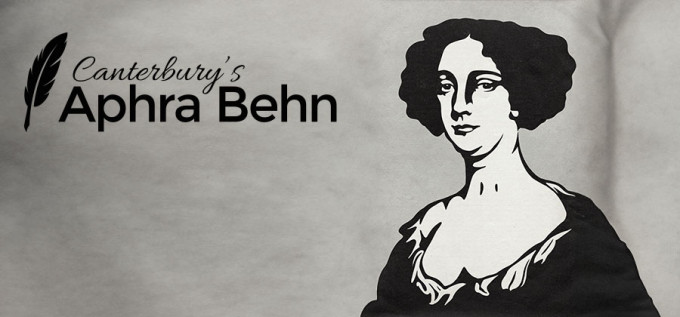
Turning now to other matters, please do check out the CKHH’s March events, the two ‘Inspirational Kent Women Writers’ events on Saturday 2 March and Saturday 9 March that include presentations by Professors Jackie Eales and Elaine Hobby, and run by Drs Claire Bartram, Astrid Stilma and Catriona Cooper. For details of these free opportunities to engage with the stories of women from the past, please do check out the CKHH future events web page: https://ckhh.org.uk/events where you will find both of these.
You will also find the ‘Migrants, Merchants and Mariners in the Kentish Cinque Ports, c.1400-c.1600’ study day to be held on Saturday 23 March at the Dover Museum (community cinema). Like the first of the ‘Inspirational Kent Women’ day, that at Dover will include a series of talks and a pop-up exhibition. For details about the Dover event, again please use: https://ckhh.org.uk/events for booking as spaces are limited.
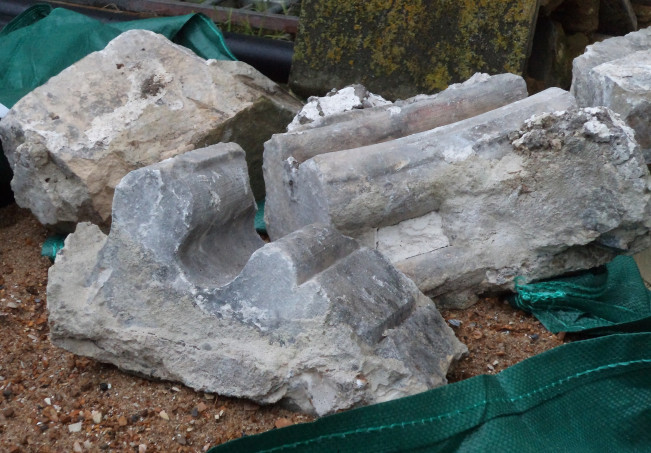
Keeping briefly to Dover, unfortunately due to a prior engagement I was unable to attend Andy Plumbly’s fascinating talk last night on how the 18th-century Navy relied on beer. As he highlighted, to meet this expanding demand the Victualling Board operated breweries at four key locations. These included Dover’s Maison Dieu, as well as London, Portsmouth and Plymouth. However, even though I missed his presentation, I was able to meet Andy today (Thursday) to join him for a tour of the Maison Dieu guided by Martin Crowther. I also met John Orchard whose ideas and work concerning keeping traditional crafts alive for future generations of craftsmen (and women) is an excellent initiative for Dover and hopefully more broadly in east Kent. Having visited the Maison Dieu late in 2023, it was exciting to see how much more very careful and highly skilled conservation and reconstruction work has taken place – absolutely brilliant!
Also taking place this week was the Brook Rural Museum trustees meeting. Brook has been part of the CCCU Applied Humanities module for 2nd year Humanities undergraduates for several years and one of the students who went on a placement there last academic year has continued as a volunteer – a great success story. Another success story is that the Museum has just found out that it has been given a second Lottery grant, which with other grants will give even more scope to offer rural heritage events, enhance the web site, do more work on the site and increase the number of items from the Museum’s collections which can be featured online – details of use, materials used, construction methods etc. More details about Museum events over the next few months, but even now please save the evening of Tuesday 24 September because Dr John Bulaitis will give the Annual Nightingale Lecture, which will feature his new book on tithe and tithe disputes – out this summer, a fascinating exploration of this topic through the ages and I cannot believe the ‘Battle of the Ducks’ won’t feature somewhere!
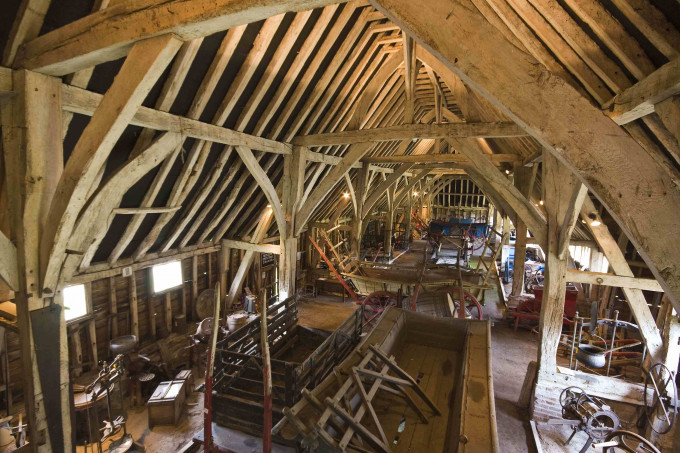
Also this week it was Jane Richardson’s presentation to the Kent History Postgraduates, so many thanks to everyone who came in person and those online. Her chosen topic was the development of the parish of Leigh and its relationship with the Lowry of Tonbridge. This included the establishment of what became the parish church of Leigh, especially matters of patronage. Although only a part of this will be used for Jane’s PhD thesis on the history of Tonbridge Priory and the two other Kentish religious houses dissolved by Cardinal Wolsey, their lands appropriated for his university college, I am going to say very little here about her very interesting presentation. For Jane, like Maureen who gave the previous presentation, is nearing the end before submission of her thesis. However, from Jane’s presentation I will just mention that as she saw for Leigh, the links between benefactors, whether through kinship, neighbourhood, community, landlord-tenant offers valuable ways of exploring local society, drawing as it does on network analysis and the ties that hold together the social hierarchy. Moreover, as she demonstrated, this provides insights into the ways families conducted such engagement with an institution like a church or religious house over successive generations, thereby touching on ideas of commemoration, legacy and ultimately power and influence.
Thus, another busy week and looking forward, even though there is no teaching at CCCU next week, the CKHH diary remains pretty full.
 Centre for Kent History and Heritage
Centre for Kent History and Heritage Sheila Sweetinburgh
Sheila Sweetinburgh 1887
1887